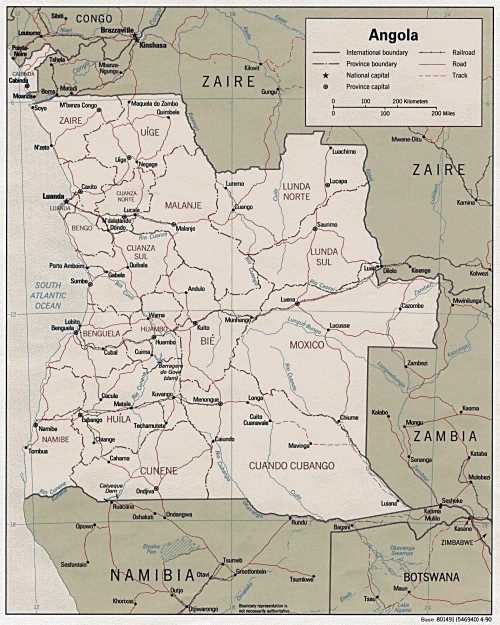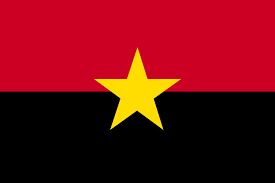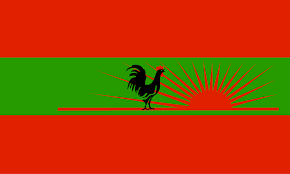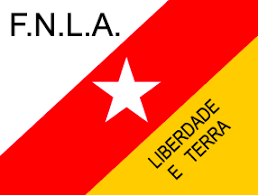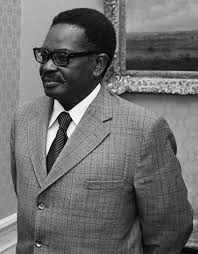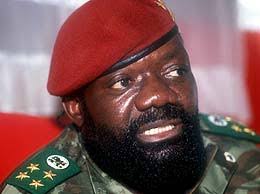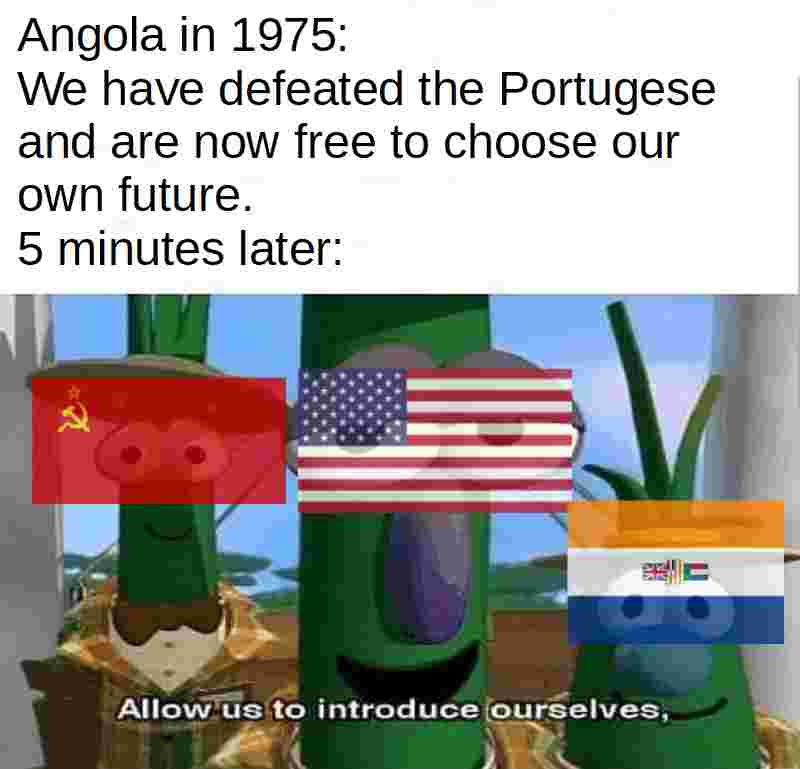

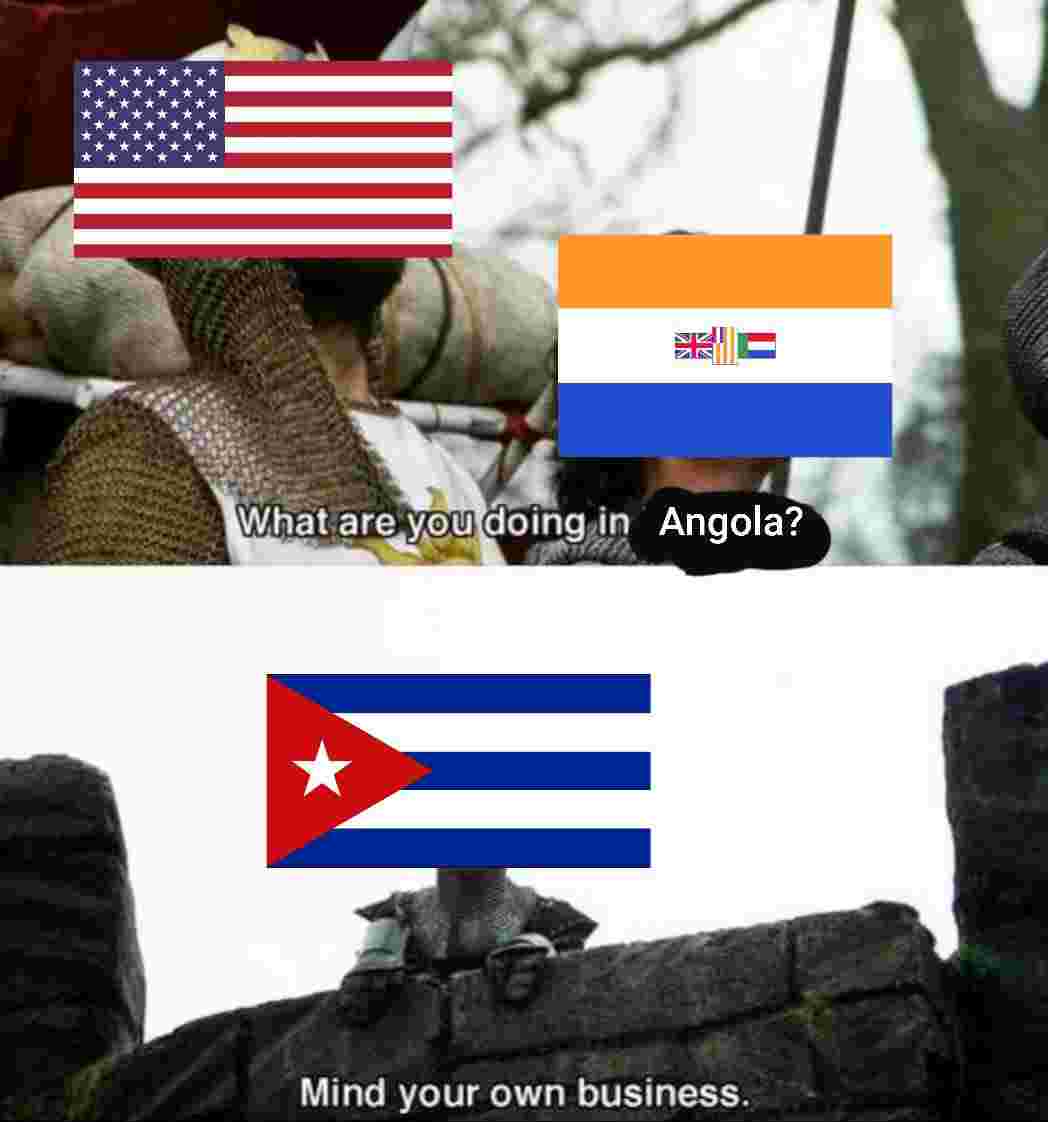
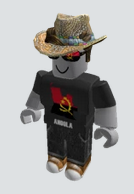

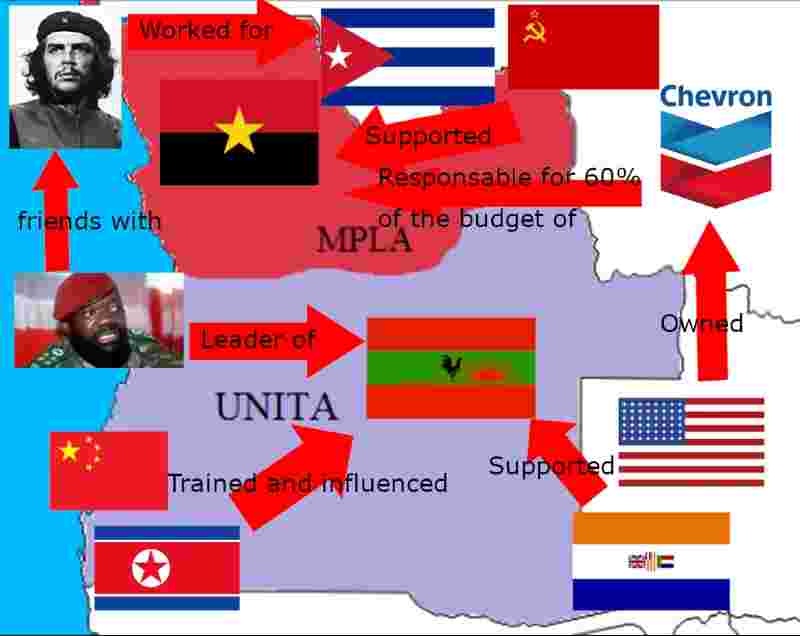
A SHRINE TO ANGOLA







The website is better on a larger screen :>
Title of the study:
Foreign intervention in the Angolan Civil War in the context of the
Cold War, and the conflicting narratives that accompanied it.
Outline Plan
Define and justify:
The study will delve into examine the foreign intervention in the
Angolan Civil War within the context of the Cold War.
The objective is to unravel the truth behind the Angolan Civil War's
narrative during the Cold War era, exploring the motivations and
consequences of foreign intervention.
Aims:
I hope to gain a better understanding of this little known civil war. I
want to know the motives of the countries involved and whether they
succeeded or not. I also want to separate the truth from the various
propaganda and untruthful narratives.
Intended approach:
For research I intend to look at a broad range of resources, although
it will be limited to sources written in English. Initially I will use
internet search engines for links to key sources (primary and
secondary) and to find a reliable timeline of events. I will also search
for relevant TV broadcasts. I will search for academic papers and
publications using e.g. via JSTOR. I will also search library
resources in Ireland for books on the history of the Angolan civil war.
I will compile a range of potential sources and narrow it down to a
short list. I will need a clear research question so I can focus on
specific sources and will evaluate their credibility and usefulness.
Sources:
S1: W. Martin James III, "A Political History of the Civil War in
Angola, 1974-1990" (2nd Edition), Routledge Taylor & amp; Francis Group,
2011.
S2: "American Interests", (1985), Public Broadcasting Service,
Directed by Joseph Camp, Produced by Andrew B. Walworth. TV
documentary broadcast 16/11/1985, uploaded to Georgetown
University online library. Available at
https://repository.library.georgetown.edu/handle/10822/552556
[Accessed 1st November 2023].
S3: "Angola", (1990), Stornoway Production Inc., Directed by Bill
Richardson and David Harel, Written by Robert Roy, TV
documentary broadcast in 1990, uploaded to YouTube, Available at:
https://www.youtube.com/watch?v=huWf6HoEWPM [Date
accessed 1st November 2023].
Evaluation of the sources
Source 1
The source is a highly relevant secondary source, as it was written
originally in 1990 by an American professor of political history and
was republished in 2011 with an additional introduction. Each
chapter has a comprehensive list of primary sources including
speeches, interviews, newspaper reports and other publications.
Detailed account of the events leading up to and including the civil
war up to 1990, at which time the debate on US support to UNITA
was ongoing. In its treatment of primary sources, it has a largely
unbiased account. In its argument and discussion it is clearly pro
UNITA and seems to argue for US involvement.
The information is presented very clearly over 10 chapters. Each
chapter includes a detailed list of fully referenced sources (primary
and secondary). The text is supported by a number of tables of
information and data.
Source 2
The source is relevant to the topic as it largely comprises a debate
between a Republican Senator and a Democrat Representative
on the question of US support for UNITA at a time when the Reagan
Doctrine was being proposed. It is useful in providing a clear picture
of how the opposing views were argued at the time, and it shows the
complexity of the background of the conflict. A weakness is that the
editorial commentary is clearly pro-interventionist, however this
does not diminish the quality of the Democratic argument presented.
The debate is open and frank, however the Democratic side is
argued more clearly. The supporting footage and commentary is
also clear but appears to be leaning towards the side of UNITA. The
concluding editorial comment is argued towards extending the
Reagan Doctrine to Angola.
Source 3
This source is highly relevant as covers the Civil War and was
made in 1990. It is relevant to this essay because it features
interviews of people who were active on all sides of the conflict
including American, Angolan, Cuban and Portuguese contributors.
Its strength is that it interviews senior level officials such as the
CIA station chief in Angola, ex-Cuban officials and Jonas Savimbi of
UNITA. Recorded quotes are often more reliable and authentic than
written sources. Another advantage of a documentary is the visual
representation it provides, for example the destruction caused by the
conflict. A disadvantage is perhaps its bias. This source seems to
glorify support UNITA and its cause by showing images of people
working and training. The reliance of dramatic music, imagery, and
narration however may reduce its value as a historical source
despite the enhancement of the viewer's engagement.
Extended Essay
This essay examines the Angolan Civil War from 1975 to 1990
as an example of post-colonial internal conflict exacerbated by
foreign intervention in the context of Cold War global politics, and
the use of media coverage to support ideologies and actions of
opposing external powers.
In the 1960s the Angolan war of independence against
Portugal involved factions supported by different external countries
largely along Cold War divisions. The three main factions from 1961
to 1975 were The People's Movement for the Liberation of Angola
(MPLA) led by Agostinho Neto, The National Front for the Liberation
of Angola (FNLA) led by Holden Roberto and The National Union for
the Total Independence of Angola (UNITA) led by Jonas Savimbi
[1].
The MPLA, supported by the USSR, Cuba and Eastern Bloc
countries, was founded as a socialist rebel group based in the main
cities of Luanda, Benguela and Huambo in the west of the country [-
--]. The FNLA was formed to fight for the Kongo people of northern
Angola [2].
UNITA was mainly supported internally by the rural population
of the south-east, comprised mostly of the Ovimbundu people.
UNITA was supported by China in early years and was
subsequently described (in a pro-UNITA book) as adopting a Maoist
strategy by building a politically educated peasantry [3 ]. Savimbi
claimed that the group was anti-imperialist which included Soviet
"social imperialism" [4 ]. Later in the Civil War UNITA was supported
by South Africa and the USA [5 ].
Portugal signed the Alvor Agreement in January 1975,
confirming commencement of Angola's independence in November
1975. Portugal withdrew its military and most of the 400,000
Portuguese people in Luanda left the country [6 ].
Shortly after signing of the Alvor Agreement, civil war broke
out between the Marxist MPLA, and the mostly non-aligned FNLA
and UNITA. In July the MPLA largely defeated the FNLA and
pushed them out of Luanda, securing legitimacy by controlling the
capital [7 ]. UNITA was eventually pushed back south towards the
rural population where Savimbi had most of his support [8 ].
External intervention followed swiftly, in the form of covert US
and direct South African military support for UNITA, and USSR
weapons and advisors paired with Cuban troops to support MPLA
[9, 10 ].
In the following years, in the US and internationally,
controversies, accusations, and counter-accusations arose
concerning CIA involvement, the relative timing of RSA and Cuban
military intervention and whether Cuba acted under Soviet
instruction [11, 12 ].
South Africa had been combating the Namibian independence
movement (SWAPO) for some years when Angola got
independence. As SWAPO was aligned with the MPLA, South Africa
sought an alliance with UNITA to secure Namibia from the rebels [---
]. South Africa commenced Operation Savannah in October 1975,
sending thousands of troops and armoured vehicles in from Namibia
to support UNITA and FNLA [13 ].
Despite opposition from many US politicians and officials due
to the recent loss in Vietnam and potential Cold War escalations, the
Ford administration authorised a CIA operation to support UNITA in
July 1975 [14 ]. Later release of secret Cuban documents showed
that the US knew about South Africa's plans for an invasion and
collaborated militarily with them, contrary to Secretary of State
Henry Kissinger's statement to Congress [15 ].
While Kissinger stated repeatedly that the US had no
foreknowledge of RSA's intentions and did not cooperate with it
militarily [16 ], former CIA operative John Stockwell stated that
"Coordination was effected at all CIA levels and the South Africans
escalated their involvement in step with our own" and that the CIA
was involved in recruitment, training, and transport of mercenaries
[17]. Former South African Prime Minister BJ Vorster later appeared
to indicate that the US actually solicited South African involvement
[18 ]. US influence on South Africa is also indicated by Ford's
remarks to Deng Xiao Ping where he suggests the US "will take
action to get South Africa out, provided a balance can be
maintained" [19 ]. When Congress committees were briefed on CIA
activities, the Senate cut off funds for CIA covert operations in
February 1976, leading to the Clark amendment, signed reluctantly
by Ford in June 1976 [20, 21].
While the Ford administration claimed that South African
troops entered Angola in response to Cuba sending troops [22 ],
Fidel Castro stated in 1976 that "We have the proof that, at least the
regular units " began the invasion on the 23rd of October. The first
Cuban unit arrived between the 5th and 10th of November" [23 ]. It
seems that South Africa sent troops as early as August 1975 to
protect the Cunene Hydro plant [24 ]. While Cuba considered
sending troops as early as 1972 [25 ], the actual date of the Cuban
intervention was 4th November 1975, apparently in response to
South African actions [26].
Initial Cuban intervention was covert, with soldiers flown in as
tourists on 4 November 1975 [27 ], but subsequently Cuba openly
sent thousands of Cuban military personnel to Angola [28 ].
The examples above show that US intervention in the Civil
War had commenced from the start by supporting South Africa's
military engagement. USSR involvement was less committed at this
stage due to reservations about Neto's aims, and it seems that Cuba
launched its intervention without informing the USSR and without
their support for at least two months [29 ]. By now China was
withdrawing fully from Angola, while accusing "Soviet revisionists" of
stirring up civil war [30 ].
The 1980s saw an escalation in the Civil War with Eastern
Bloc countries providing aid to the MPLA and South Africa scaling
up operations with UNITA. In February 1984, Forbes magazine
estimated the cost of USSR support for the MPLA at 4 billion USD a
year [31 ]. MPLA also funded its operations using oil royalties paid
by major American oil companies such as Gulf, Chevron and
Conoco, with the oil platforms being protected by Cuban troops [32
]. This commercial interest held by major US corporations may have
influenced subsequent US decisions in the mid to late 1980s,
perhaps also tempered by international views on South Africa.
In 1985 the US Congress abolished the Clark amendment,
establishing the "Reagan Doctrine" and lifting the prohibition on
military intervention in support of perceived "freedom fighters" such
as UNITA [33 ]. This opened a debate in the US on potentially
resuming direct intervention in Angola. Democrats were against
intervention on the grounds that it would be seen to support South
Africa and thus embed support for USSR in Africa, while some
Republicans argued that intervention would support "freedom" and
reduce Soviet influence. The South African apartheid regime was
now obviously viewed as diplomatically toxic [34 ].
This debate was overtaken by major developments in the Cold
War power balance in the late 1980s. The ending of the Cold War in
December 1989 resulted in rapid disengagement from Angola by
external actors [---]. Cuba withdrew its forces on Namibian
independence in 1990 following agreement with the US and South
Africa [35 ].
In 1992, with support from Portugal and the UN, a multiparty
political system was set up, allowing FNLA and UNITA participation
in parliament in 1992, although fighting continued intermittently until
2002 when Jonas Savimbi was killed.
This essay shows how internal post-colonial conflict in Africa
was used by foreign powers in the Cold War era to assert their
respective influences on a global scale, and the impact of that
intervention on the local population.
The Angolan Civil War, lasting up to 27 years and conducted
with military intervention by opposing external powers for the first 15
years of its duration, cost the lives of 500-800 thousand up to 1.5
million people [36 ]. The Cold War was the impetus for initial
external intervention by South Africa supported by the US, and Cuba
supported by USSR. Although US seems to have withdrawn its
involvement by 1976, Cuba (with USSR and Eastern Bloc support)
and South Africa maintained military engagement until 1990.
US involvement ceased in 1976 with the Clark
Amendment, but resumed in the late 1980s as part of the
Reagan Doctrine. Meanwhile Cuba (with USSR and Eastern
Bloc support) and South Africa maintained military engagement
until 1990.
While the Angolan Civil War developed from post-colonial
internal Angolan factional conflicts, from 1975-1990 it was largely
perpetuated by intervention from opposing external forces in the
Cold War, exacerbated by South Africa's imperative to maintain
regional control. It could also be argued that support from opposing
Cold War forces for MPLA/UNITA contributed significantly to further
embedding hostilities beyond 1990 and perpetuation of the Civil War
until 2002.
Endnotes
1."Angola", (1990), Stornoway Production Inc., Directed by Bill
Richardson and David Harel, Written by Robert Roy, Available at:
https://www.youtube.com/watch?v=huWf6HoEWPM [Date
accessed 1st November 2023].
2.Ibid.
3.W. Martin James III, "A Political History of the Civil War in Angola,
1974-1990" (2nd Edition), Routledge Taylor & amp; Francis Group, 2011,
1-8.
4.Ibid.
5.CIA, The World Factbook - Angola, 2023, https://www.cia.gov/the-
world-factbook/countries/angola/ , [Date accessed: 4th November
2023].
6."Angola", (1990), Stornoway Production Inc.
7.Ibid.
8.Ibid.
9.James, op. cit., Chapter 3.
10."Angola", (1990), Stornoway Production Inc.
11.Ibid.
12.James, op. cit., Chapter 3.
13.Ibid., 62.
14."Angola", (1990), Stornoway Production Inc.
15.National Security Archive, Press Advisory "National Security
Archive Electronic Briefing Book No. 67" (2002), Available at
https://nsarchive2.gwu.edu/NSAEBB/NSAEBB67/ (accessed
3/12/2023).
16.James, op. cit, 84.
17.Ibid., 84, 86.
18.Ibid, 84.
19.National Security Archive, op. cit., December 3, 1975, White
House Memorandum of Conversation with Chinese Officials,
Available at https://nsarchive2.gwu.edu/NSAEBB/NSAEBB67/ .
20."Angola", (1990), Stornoway Production Inc.
21.James, op. cit., 84.
22.National Security Archive, op. cit.
23."Angola", (1990), Stornoway Production Inc.
24.James, op. cit., 61.
25.National Security Archive, op. cit., November 22, 1972,
Memorandum, "The Shipment of Comrades to Angola and
Mozambique", Available at
https://nsarchive2.gwu.edu/NSAEBB/NSAEBB67/
26.National Security Archive, op. cit.
27."Angola", (1990), Stornoway Production Inc.
28.Ibid.
29.Ibid.
30.James, op. cit., 84.
31.Ibid., 85.
32."Angola", (1990), Stornoway Production Inc.
33."American Interests", (1985), Public Broadcasting Service,
Directed by Joseph Camp, Produced by Andrew B. Walworth.
Available at
https://repository.library.georgetown.edu/handle/10822/552556
[Accessed 1st November 2023].
34.Ibid.
35."Angola", (1990), Stornoway Production Inc.
36.CIA, op. cit.
By SKéire/leaf
my website
